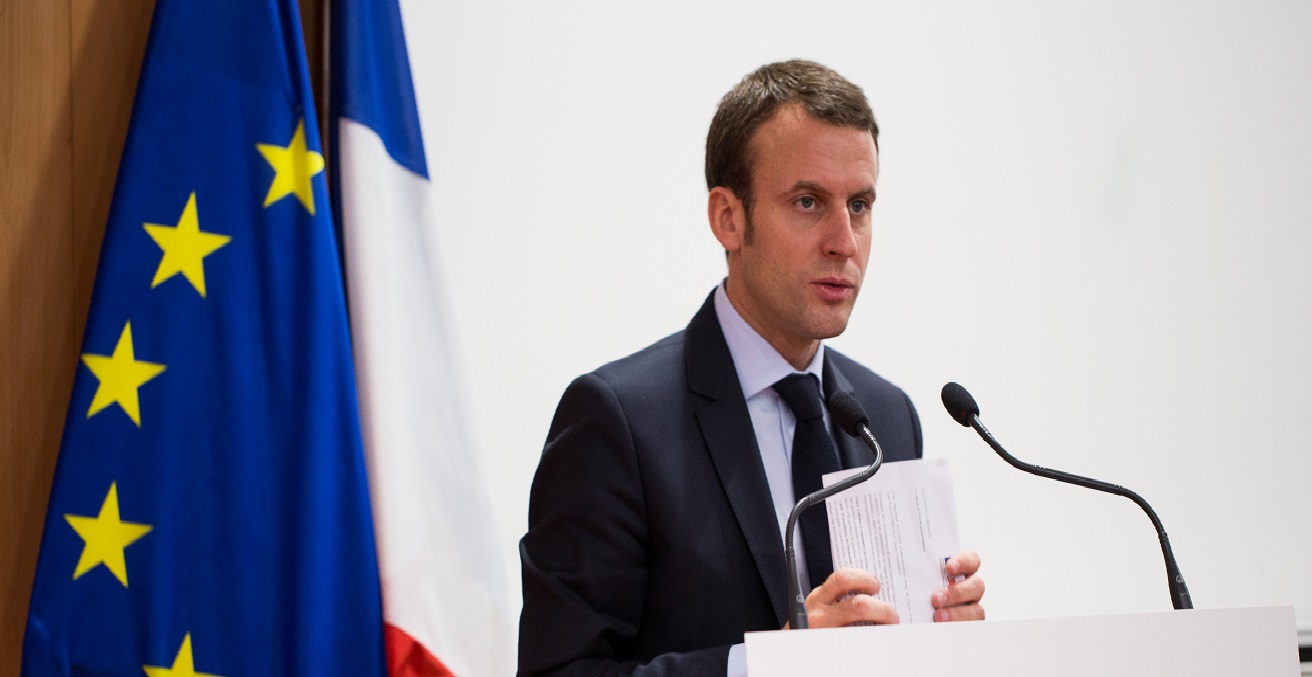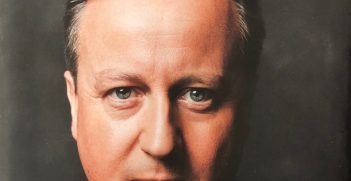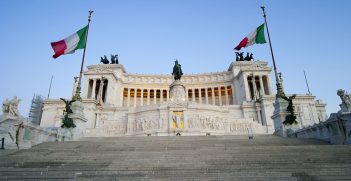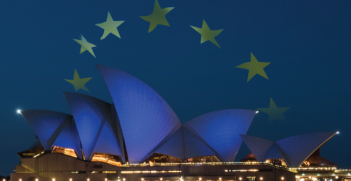Macron's Plan to Rebuild Europe

In the wake of Angela Merkel’s weakened leadership in Germany, and as Brexit talks stall again, French President Emmanuel Macron has used these uncertain times to launch radical plans to rebuild Europe.
In a 100-minute speech at the Sorbonne in Paris on Tuesday, Emmanuel Macron set out a cascade of initiatives which, if implemented, would lead to the biggest changes in Europe since the introduction of the Euro. His proposals included the creation of a military intervention force, a common defence budget and a host of new pan-European agencies, including one to curb illegal immigration.
Macron’s proposals were given a warm reception at an informal dinner for EU leaders in Tallinn on Thursday. Notably, newly re-elected German Chancellor Angela Merkel, who some thought was cool on the ideas, welcomed them, saying, “I am strongly convinced that Europe cannot stand still, and that it must continue to develop in the future. We should very quickly enter into discussions.”
Europe’s travails
Macron’s seminal speech comes as the EU passes through a period of significant political and economic upheaval. The economy is returning to growth, but Europe faces a set of immense new challenges.
The immigration surge has created deep divisions, fuelling support for populist right-wing parties and nationalists—as illustrated by the Alternative for Germany (AfD) party’s strength in last weekend’s German election.
The wave of asylum seekers fleeing war zones in Syria and Iraq has waned, thanks to a fragile EU deal with Ankara whereby Turkey takes boat people back. But this reduction has been exceeded by the huge numbers now coming from Libya, enabled by smuggling operations. While some of those making the hazardous crossing to Italy are genuine refugees, the majority are economic migrants hoping for a better life in Europe.
An estimated 2,000 drowned in the three months to June, but well over 150,000 made it to Italy this summer, aided by a flotilla of NGO rescue boats. Italy has appealed for international help, to little effect.
Germany, the EU’s economic powerhouse, originally opened its borders to Syrian and Iraqi refugees, but the policy rebounded on Chancellor Angela Merkel who was forced to backtrack. Merkel’s Christian Democratic party managed to win the largest number of seats in last weekend’s elections, but came in well below expectations.
The shock was the rise of the far-right AfD, which has representation in the Bundestag for the first time, having won one in eight of the seats. Merkel must now form a coalition with the pro-business Free Democrats and the Greens. She admits this could take three months and limit her influence.
Brexit negotiations are in serious trouble, for many reasons. More than 15 months after the British voted by a narrow majority to leave the European Union (with more than a quarter of voters abstaining) very little progress has been made.
UK Prime Minister Theresa May’s weakened and divided government has switched tactics. Having been prepared to walk away from the world’s strongest economic bloc (“no deal is better than a bad deal”), her position is now that Britain remains in the EU in all but name for at least two years after the official exit in early 2019. Britain will try to secure open access to the EU single market for UK manufacturers and services.
In a conciliatory speech in Florence last week, May acknowledged that Britain had to honour its financial obligation to the EU. Supposedly with her Cabinet’s support, she had moved from a “hard” Brexit to a “soft” one. However, just one week after the speech, the new tactics appear to be failing.
The EU’s chief negotiator, Michel Barnier, has refused to discuss a trade deal in parallel with settling the so-called “divorce bill”. May’s fragile Cabinet unity is collapsing, with Foreign Secretary Boris Johnson resisting an EU divorce payment and breaking ranks to host an event this week for a new think tank, the Institute of Free Trade, that argues for a hard Brexit. And at the conclusion of Labour’s annual conference this week, the popular party leader Jeremy Corbyn changed his position, arguing for Britain to remain in the EU single market and customs union. Labour has only to gather a few Tory rebels—and there are a growing number—and the government faces defeat in parliament and another general election. On current polls, Corbyn would win.
A vision for a new Europe
It was amid this maelstrom of events that Macron launched his vision for a new Europe. It neatly embraced all the events mentioned here. He implored EU leaders to be “bold” against the threat of populism, urged an end to “civil wars” that have thwarted the EU in building a powerhouse to compete with China and the United States, and suggested Britain might want to re-join the project in the future.
To the delight of Brussels, Macron called for a pan-European military budget and a “military intervention force” to work alongside NATO, as well as the establishment of a European counterterrorism agency, and another body to drive radical innovation across the continent. He called for an overhaul of the common agricultural policy and a financial transactions tax to fund African development.
Among his boldest proposals was a European Asylum Office which would create a common policy for border management, migration and asylum to manage the process. Had it been in place when the British referendum took place, such a body might have swayed a vote to remain.
It’s not possible to say whether Macron’s ideas will become reality, but then a year ago few of us thought that a new party with no MPs in the French National Assembly could fight and win a presidential election. Macron is the one European politician who seems capable of bridging the gulf between the people and their leaders.
Colin Chapman is a writer, broadcaster and public speaker who specialises in geopolitics, international economics and global media issues. He is immediate past president of AIIA NSW.
This article is published under a Creative Commons Licence and may be republished with attribution.





